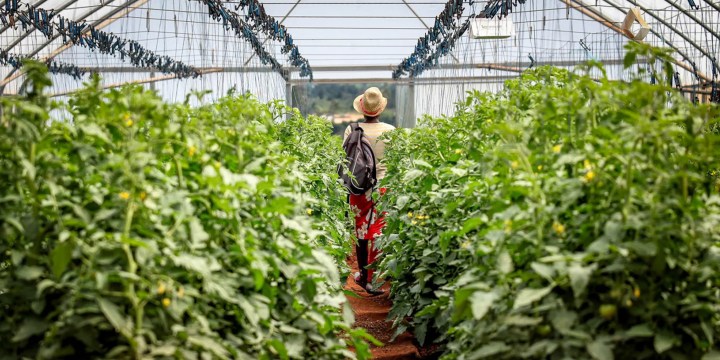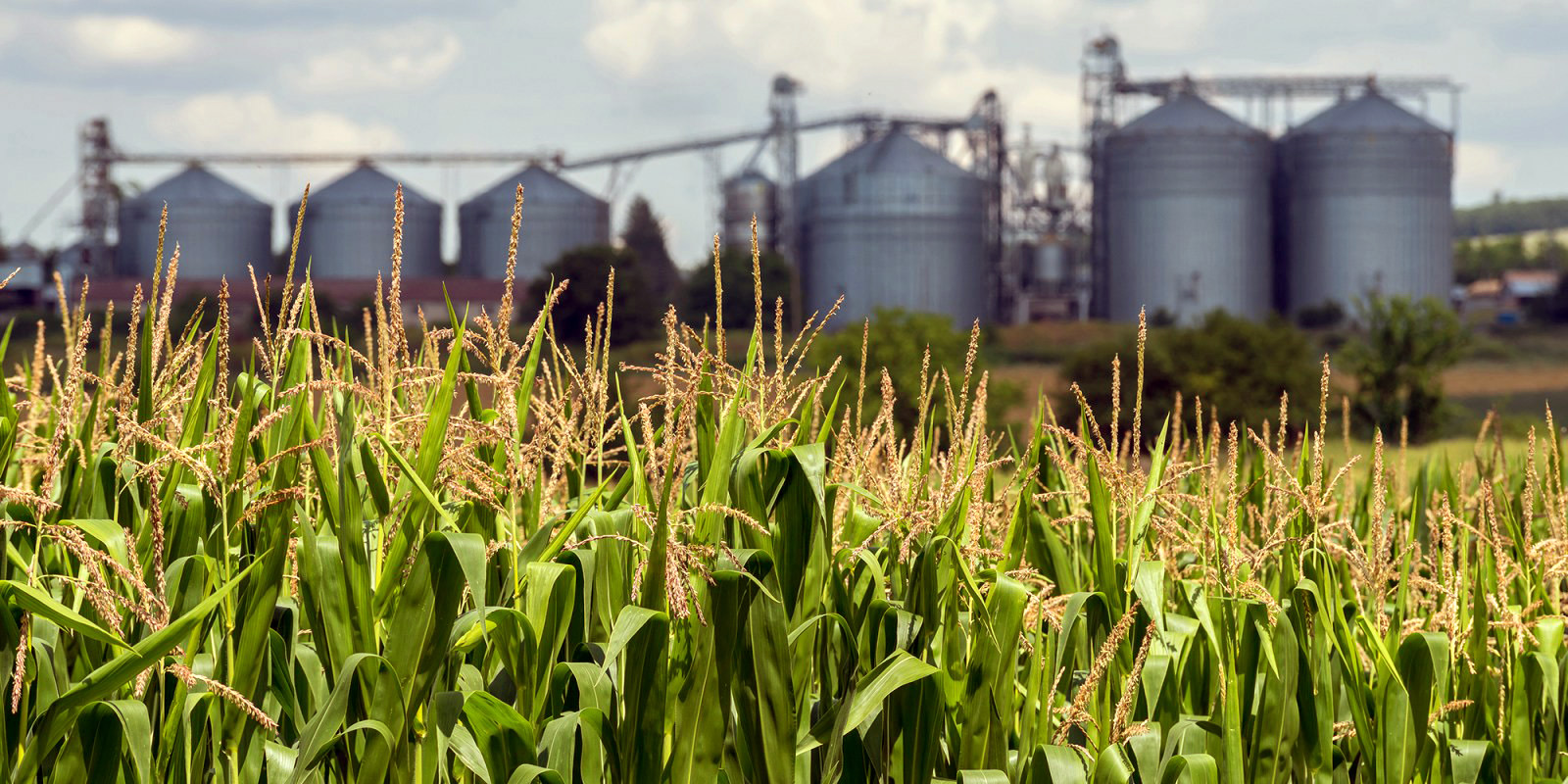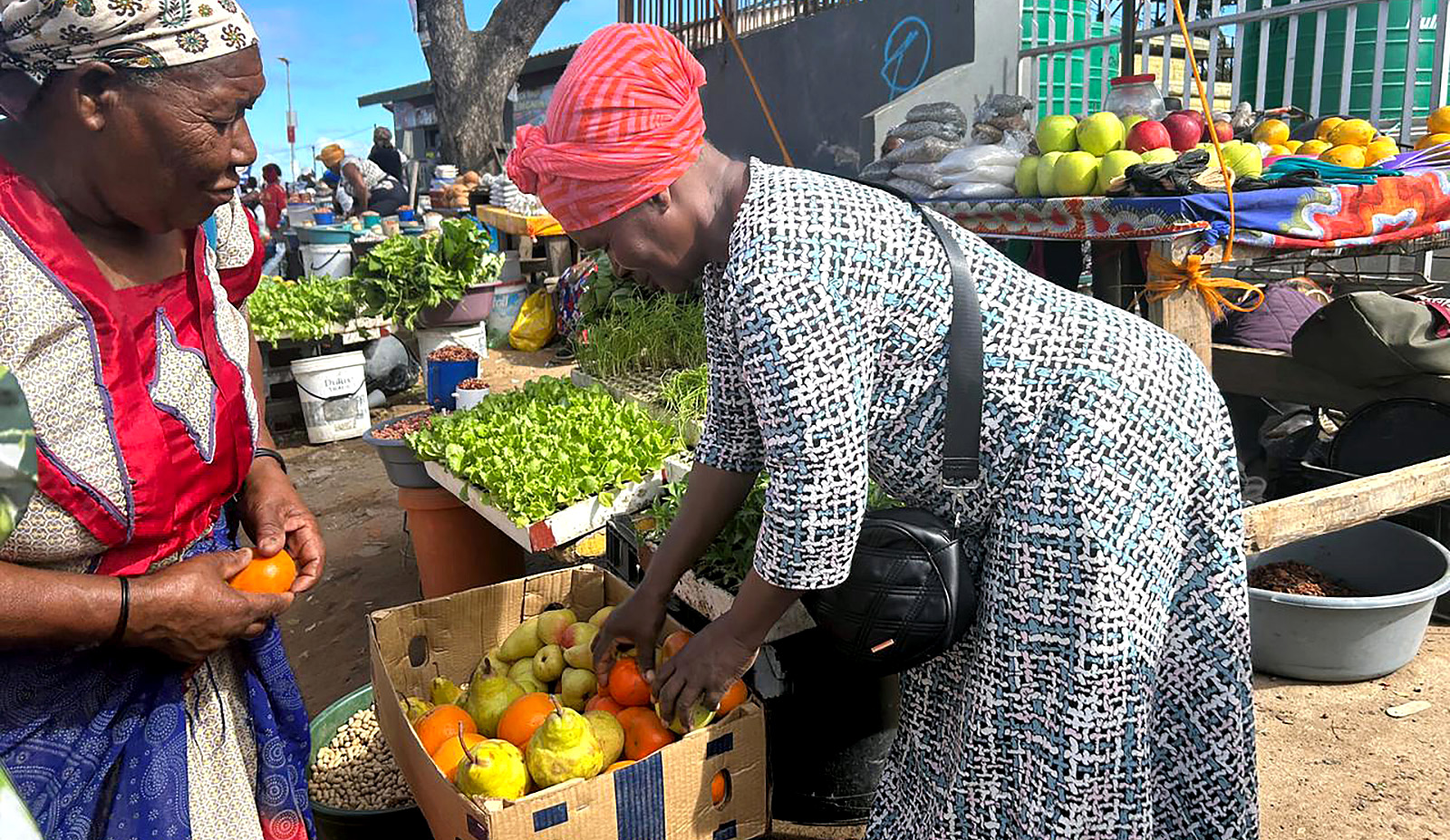CLIMATE CHANGE AND DEVELOPMENT PART 4
Food systems transformation features prominently in the agenda of COP28

COP28, under the UAE presidency, has prioritised Food Systems and Agriculture. The agri-food systems contribute about one-third of greenhouse gas emissions; they are also highly vulnerable to climate impacts and have significant potential for positive climate action.
Food systems and land use present significant opportunities for both adaptation and mitigation.
Governments globally have made commitments to transform food systems and mitigate the risk of exceeding the 1.5°C temperature target. Failure to overhaul global food systems could have severe consequences for food and nutrition security, as well as for livelihoods and income generation. The 2023 Intergovernmental Panel on Climate Change (IPCC) report underscored that effective solutions to mitigate and adapt to climate change can be achieved through climate-resilient development and holistic measures, particularly in the food and agriculture sectors.
Read more in Daily Maverick: Drivers of global heating — critical food, food systems to be discussed at COP28
Africa’s food systems are confronted with various obstacles and are exposed to external factors, which include climate change, severe weather conditions, pest and disease outbreaks, and insufficient access to and utilization of yield-boosting technologies. As a result, the capacity to cater to the food requirements of Africa’s expanding populace has been challenged, leading to a surge in malnourishment cases. Current FAO statistics indicate that around 670 million individuals (which makes up 8% of the world population) will still be struggling with hunger in 2030.
Focusing on food systems transformation at COP28 could significantly benefit Africa by improving existing activities and is an opportune moment for governments to reconsider their support for food and agriculture. Despite progress in food production, processing and distribution systemic weaknesses create food and nutrition insecurity as well as damage to the environment.
Nutrition
In Africa and many developing countries, the main source of food is starchy staples, causing deficiencies in micronutrients while animal-based foods are not consumed at the recommended levels, leading to further malnutrition. To tackle these issues, Africa and other developing countries need to improve food and nutrition security while minimizing environmental harm. Africa also needs an integrated, cross-sectoral intervention for resilient, equitable, and sustainable food systems. Collaboration, commitment from all stakeholders, political will, and support from development partners are essential.
It is essential to redirect public support towards food and agriculture systems as part of the economic recovery efforts, especially after the recent multiple economic shocks. In Africa, a need for several policy reforms has been identified. The policy reforms will address crucial impediments to the transformation of food systems. These policy reforms encompass land tenure and governance in order to achieve resilient food systems.
Read more in Daily Maverick: COP28 news hub
To promote investments in production infrastructure, public expenditure reforms need to be implemented, and private capital should be included to speed up the construction of critical infrastructure, which is necessary to unlock Africa’s potential as a global economic powerhouse. By focusing on building targeted infrastructure that supports competitive industries and sectors in industrial parks and export-processing zones connected to global markets, African countries can swiftly integrate into the global economy.

Governments can encourage sustainable and productive e-practices through policies that promote initiatives such as the biofortification of crops. (Photo: iStock)
The recent disruptions in African food systems as a result of the Ukraine conflict have created an opportunity for Africa to develop a medium- to long-term plan to establish a secure, resilient, and sustainable food supply for the continent, and to accelerate the implementation of the African Continental Free Trade Area (AfCFTA).
Through the implementation of the AfCFTA, a comprehensive strategy is utilised to decrease reliance on imported food, which involves a combination of measures such as improving agricultural productivity, upgrading infrastructure, increasing market access, and adopting climate-resilient practices. This approach seeks to stimulate investment, trade, and collaboration across various sectors, which will lead to economic growth, poverty alleviation, and improved food and nutrition security. The creation of value chains under the AfCFTA is a significant driver of agri-food systems, which promotes value addition while reducing post-harvest losses, creating jobs, and increasing the availability of processed and value-added food products to boost intra-Africa trade.
Technology and improved resources
In building resilient food systems, the African continent should increase the use of mechanisation and appropriate technology such as automated irrigation schemes, especially for smallholders. More effort is required to enhance soil health and fertility in Africa, where at least 99% of soils lack phosphorous. Green fertilisers are urgently required to be utilised more in Africa. In order to achieve self-sufficiency in maize production by 2050, Africa needs to increase the use of green fertilizers by 8-12 times.
In Africa, research and development are crucial in agriculture, especially in the development of drought-resistant seeds. To achieve sufficient returns on investment and continue agricultural intensification, farmers need to embrace seeds with improved genetics, along with appropriate fertilizer and effective crop management practices.

Technological innovations should include changes in how food is produced, distributed, and consumed, writes the author. (Photo: Zukiswa Pikoli)
Investment and innovation
Innovative ways of raising funds for food system transformation need to go beyond traditional methods. Financing mechanisms could include microfinance, crowdfunding, pay-for-success contracts, social impact bonds, and blended finance. Such financing mechanisms can help small-scale farmers, promote innovation in agriculture, enhance the resilience of supply chains, and boost local food economies.
Innovations play a critical role in transforming food systems in Africa. Technological Innovations should include changes in how food is produced, distributed, and consumed, and can be driven by various types of innovation including technological, social, institutional, and policy innovations.
Technological innovations in food systems include new farming techniques such as precision agriculture and vertical farming, novel food processing methods, or innovative food products (like alternative proteins). Such innovations can help increase food production efficiency, reduce environmental impact, and offer healthier, more diverse food choices. Social and institutional innovations can involve new ways of organising and governing food systems such as alternative food networks, participatory guarantee systems, or fair-trade initiatives.
The Digital Revolution has the potential to contribute to transforming Africa’s food systems. The benefits of the digital revolution include access to real-time market information, safer financial transactions, improved productivity and income, and greater empowerment for women. Achieving sustainable digital food systems requires collaboration between the public and private sectors, non-profit organizations, and the international community.
However, there are still disparities in access to digital technologies across Africa. African governments need to support infrastructure development and funding, which is necessary for digitalisation, with the state taking the lead and other stakeholders providing support. The slow pace of progress in the uptake of digitalisation in Africa is attributed to factors such as the digital divide, high costs of digitalisation, low uptake, and limited research and technical capacity. To address these challenges, policies should focus on reducing communication costs and addressing low digital skills through human resource policies.

Technological innovations in food systems include new farming techniques such as precision agriculture and vertical farming, novel food processing methods, or innovative food products (like alternative proteins). (Photo: South African Tourism / Flickr)
Conclusion
COP28 presents an opportune moment for governments to integrate sustainable agriculture into their national climate agendas while ensuring that the agriculture sector is integral to achieving environmental and social goals. By transforming the usage of agricultural products, it is possible to improve the resilience of the sector, promote healthier diets, and reduce environmental impact.
For the African continent, achieving food systems transformation requires a conducive environment that fosters investments in local food production, processing, and distribution, while reducing dependence on imports and enhancing resilience against global market shocks. The implementation of AfCFTA is critical in addressing the above-mentioned challenges.
Climate-smart agriculture is critical to mitigate and adapt to climate change. Policy reforms should include a mix of strategies which include appropriate technologies, use of green fertilizers, research and development, increased technology usage, responsive financial mechanisms and inclusion of women and gender youth equity, emphasise nutrition-sensitive agriculture, and foster public-private partnerships. This is a roadmap for future actions guiding the continent towards food systems where every African will have access to sustainable healthy diets.
While digitalisation of food systems can increase efficiency and decrease costs, it faces challenges such as inadequate infrastructure, limited access to ICT, and financial constraints. Achieving a balance between productivity and sustainability is vital for the successful digitalisation of food systems in Africa. Governments can encourage sustainable and productive e-practices through policies that promote initiatives such as the biofortification of crops. DM
This is the fourth article in a series on climate change and development in Africa presented by the Nelson Mandela School of Public Governance at UCT. In the context of COP28, taking place in the United Arab Emirates, it aims to assist readers in understanding the nuances of the debate on how to respond to the systemic impacts of climate change.
Read part one here : A much larger transformation in Africa — why a just transition must be complemented by climate-resilient development
Read part two here: Conflicting visions on ‘Just Transition’ to low carbon economy cloud critical climate change negotiations
Read part three here: Making the most of Africa’s critical minerals in just transition to green and renewable energy sources
Noncedo Vutula is a Senior Research Fellow at the Nelson Mandela School of Public Governance. She has held various senior positions in the government of the Republic of South Africa where she has provided technical advice on a broad range of agricultural trade issues, trade negotiations as well as rural economic transformation for growth of the smallholder farming sector including markets, skills, and infrastructure.
She was a trade negotiator for the Department of Agriculture, Forestry and Fisheries in the World Trade Organisations, in Geneva, Switzerland, where she chaired person the WTO SPS Committee. She has been a focal point for Comprehensive Africa Agriculture Development Programme (CAADP) on behalf of South Africa. In this capacity she spearheaded the implementation of CAADP in South Africa, resulting in the implementation of continental agricultural obligations such as sustainable agricultural policies in South Africa as well as conducting public expenditure profiling in line with the CAADP targets.


















 Become an Insider
Become an Insider
Comments - Please login in order to comment.